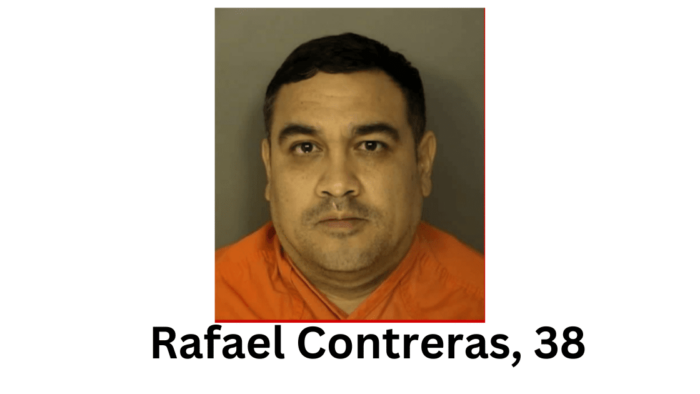
FLORENCE, S.C. — A federal grand jury in Florence has returned a two-count indictment charging Horry County illegal immigrant, Rafael Contreras, 38, of Mexico, with distributing cocaine and heroin and money laundering. Contreras, an Horry County illegal immigrant, was extradited from Mexico and arraigned in federal court in Florence this morning. This case underscores the ongoing challenges faced by law enforcement in combating drug trafficking and organized crime, particularly in areas heavily affected by the opioid crisis. The implications of this case extend beyond the immediate charges, impacting families and communities struggling with addiction, as many are affected by the actions of illegal immigrants like Contreras.
Understanding the Impact of Horry County Illegal Immigrant Activities
This case highlights the serious issues surrounding Horry County illegal immigrant activities, which can have far-reaching effects on local communities and safety.
Furthermore, the presence of Horry County illegal immigrants involved in criminal activities like drug trafficking compounds the challenges that local communities face.
Addressing the issues related to Horry County illegal immigrants requires a concerted effort from law enforcement and community leaders.
In particular, the impact of Horry County illegal immigrants on drug trafficking reveals the need for enhanced surveillance and intelligence-sharing.
The community’s engagement is crucial in addressing the challenges posed by Horry County illegal immigrants involved in drug-related crime.
Health officials emphasize that the activities of Horry County illegal immigrants like Contreras can lead to dire consequences for local families.
This case exemplifies the significant threats posed by Horry County illegal immigrants who engage in drug trafficking and other criminal activities.
The indictment against an Horry County illegal immigrant sends a strong message about the need for vigilance in combating drug trafficking.
This case of an Horry County illegal immigrant underscores the importance of community support in addressing drug-related challenges.
The involvement of Horry County illegal immigrants in drug networks highlights the need for comprehensive strategies to combat crime.
Efforts to dismantle drug trafficking networks must consider the role of Horry County illegal immigrants in these criminal enterprises.
In addition to the legal ramifications of drug trafficking, it is vital to understand the broader social context. Communities affected by such activities often face economic challenges, increased healthcare costs, and strained social services. Local organizations and community leaders are pivotal in creating awareness and advocating for policies that support public health and safety. Educational programs aimed at young people can help prevent the initiation of drug use, ultimately contributing to safer neighborhoods.
Law enforcement agencies continue to innovate and adapt their strategies to tackle the ever-evolving landscape of drug trafficking. Training programs for officers emphasize the importance of community engagement and building trust with residents. By fostering strong relationships between law enforcement and the communities they serve, agencies can better identify and address the root causes of drug-related issues, ultimately leading to more effective crime prevention.
Additionally, technology plays a significant role in modern law enforcement efforts. Surveillance tools, data analytics, and intelligence-sharing platforms enhance the ability to track and disrupt drug trafficking operations. As these technologies evolve, so too must the strategies employed by law enforcement to stay ahead of criminals who may exploit new methods to evade capture.
Finally, it is essential to engage the community in the fight against drug-related crime. Community outreach programs that educate residents about the dangers of drug trafficking and addiction can empower individuals to take a stand against these issues. By fostering a sense of community responsibility and encouraging active participation in local initiatives, residents can play a crucial role in creating a safer environment for everyone.
The indictment alleges that Contreras directed the sale and distribution of large quantities of heroin and cocaine from Mexico, with the narcotics largely being sold in Horry County. The significant volume of drugs reportedly moved through Horry County has raised alarming concerns among health officials and community leaders. The ripple effects of such drug trafficking often result in increased rates of addiction, crime, and family disruption, prompting local organizations to rally for more resources and preventive measures.
“The extradition of this defendant marks a victory in our fight against transnational criminal organizations,” said U.S. Attorney Adair Ford Boroughs for the District of South Carolina. “We are grateful for the close cooperation with our law enforcement partners in Mexico and here in the United States. This extradition demonstrates our unwavering commitment to prosecuting those bringing illegal narcotics into our communities.” The partnership between U.S. and Mexican authorities is crucial in tackling the complex networks behind drug trafficking, as these organizations often operate across borders, utilizing sophisticated methods to evade capture.
“This indictment and extradition send a clear message: the FBI is relentless in its pursuit of the criminals behind large-scale drug operations,” said Steve Jensen, Special Agent in Charge of the FBI Columbia field office. “The defendant, as alleged, caused significant harm to Horry County by directing the distribution of lethal amounts of heroin and cocaine. The FBI and our law enforcement partners will continue to expose and root out international drug trafficking networks that threaten the safety of our communities.” The FBI’s ongoing investigations into these networks involve extensive intelligence gathering, surveillance, and collaboration with various agencies to dismantle operations that pose a serious threat to public safety.
Contreras faces a maximum penalty of life in prison. He is currently detained pending trial. The harsh penalties associated with drug trafficking crimes are intended to deter others from engaging in similar activities. Cases like this often serve as a pivotal moment for communities, as they highlight the personal stories behind the statistics, with families affected by addiction and crime seeking justice and support.
This case is part of an Organized Crime Drug Enforcement Task Forces (OCDETF) investigation. OCDETF identifies, disrupts, and dismantles the highest-level drug traffickers, money launderers, gangs, and transnational criminal organizations that threaten the United States by using a prosecutor-led, intelligence-driven, multi-agency approach that leverages the strengths of federal, state, and local law enforcement agencies against criminal networks. Additional information about the OCDETF Program can be found at https://www.justice.gov/OCDETF. The strategic cooperation within OCDETF has proven essential in addressing the complexities of drug trafficking, enabling law enforcement to respond more effectively to emerging threats.
The case was investigated by the FBI Columbia Field Office, the Horry County Police Department, the Horry County Sheriff’s Office, and the Myrtle Beach Police Department. The Justice Department’s Office of International Affairs worked with law enforcement partners in Mexico to secure the arrest and extradition of Contreras. The U.S. Marshals Service completed the removal of Contreras from Mexico to the District of South Carolina. Assistant U.S. Attorney Katherine Flynn is prosecuting the case. This collaborative approach between multiple agencies exemplifies the commitment to dismantling drug trafficking operations and ensuring that those responsible are held accountable for their actions.
All charges in the indictment are merely accusations and defendants are presumed innocent unless and until proven guilty beyond a reasonable doubt in a court of law. This principle is a cornerstone of the American judicial system, ensuring that every individual receives a fair trial. The overarching focus on justice and rehabilitation is essential in addressing the broader issues of drug addiction and crime within communities, reinforcing the need for comprehensive solutions that include prevention, treatment, and enforcement.
Local News Via - MyrtleBeachSC.com










